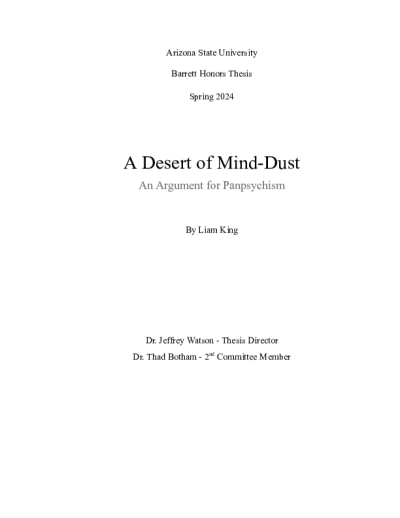
Panpsychism is the view that consciousness is an intrinsic state of the world. While early forms were advanced by Spinoza and Russell, only recently has panpsychism gained widespread academic consideration. In this paper, I will argue for panpsychism, based on a similarity of the nature of our consciousness with the nature of the parts of our consciousness. This argument will be motivated by an anti-strong emergentist viewpoint, while allowing for complex consciousness to arise from a form of weak emergence between fundamental parts. Ultimately, this argument demonstrates that an identity theorist would collapse to panpsychism or strong emergentism, the former being preferred. From this, I argue that panpsychists can gain some intuitive benefits of dualism and materialism, without inheriting their issues. This positions the panpsychist well to respond to issues like Jackson’s (1982) Mary-argument. I will then discuss possible objections to panpsychism, focusing primarily on the combination problem. I conclude that the co-consciousness strategy is the optimal solution to this problem and can account for the inverse issue of the decombination problem that cosmopsychism faces. Overall, panpsychism’s explanatory power and compatibility with other disciplines makes it a favorable theory within the philosophy of mind.
Details
- A Desert of Mind-Dust: An Argument for Panpsychism
- King, Liam (Author)
- Watson, Jeffrey (Thesis director)
- Botham, Thad (Committee member)
- Barrett, The Honors College (Contributor)
- School of Molecular Sciences (Contributor)
- Historical, Philosophical & Religious Studies, Sch (Contributor)

